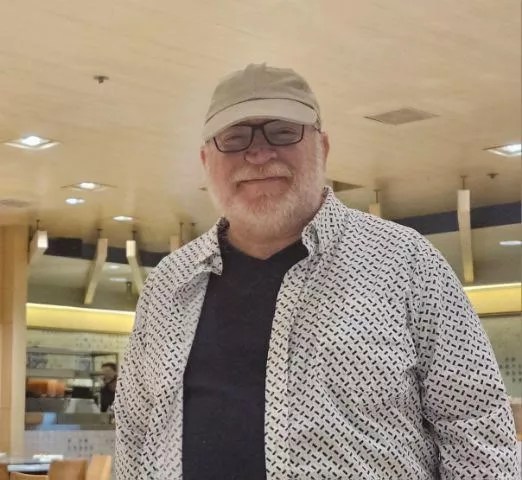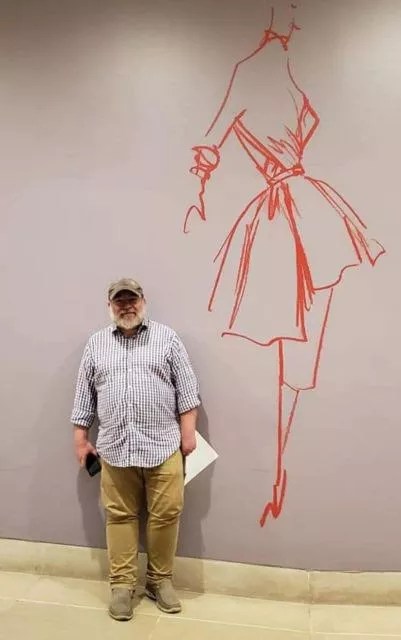
Arianna Movassagh

Audio By Carbonatix
Theater maven Bruce Coleman had a love for his art because it allowed him a way to search for beauty and present it to his community.
“He loved beauty, and I’m not talking about beauty worship,” says actress and longtime friend Arianna Movassagh. “It’s like he found the beauty in things. He found and he loved the uniqueness in people.”
Movassagh recalls a time when the two started hanging out together and he realized that they shared the same passion for using whatever materials or resources they could find to draw, paint, write or design costumes.
“He also did what I did when I was beginning as a young person,” Movassagh says. “I did everything. I painted and danced and look around my room and used whatever I could. He did the same thing, so it was like, wow, I guess it’s OK to create that way. You don’t have to go out and buy the fanciest material. You can use what you have and can really turn it into something beautiful.”
Coleman died suddenly on Aug. 15, of a heart attack. He was 62.
He had worked in the Dallas theater scene since 1985 in pretty much every capacity a person can have in the industry. He taught theater at MacArthur High School in Irving and periodically at the Booker T. Washington High School for the Performing and Visual Arts. He designed and made costumes. He built and painted scenery. He wrote scripts and directed shows at Theatre Three, the Dallas Children’s Theatre, the Uptown Players and others.

Bruce Coleman possessed a natural eye for design. Actress and friend Arianna Movassagh says he designed and made costumes and sets for several productions over his multi-faceted theater career.
Arianna Movassagh
When he wasn’t working on a stage production, he painted, took photos and drew caricatures.
“He wasn’t a middle-of-the-road kind of guy,” Movassagh says. “He really branched out and showed audiences the different ways of how a production could look and how it could be interpreted. He just had a unique vision for things.”
Coleman seemed to have no limit on how hard he was willing to work to ensure his crew and cast had a show to present on its scheduled opening night. Uptown Players executive producer Jeff Rane recalls a troublesome production in 2006 for the musical Thrill Me. It’s based on the story of the infamous duo Leopold and Loeb, wealthy college students who were convicted of murdering a teenager in Chicago in 1924. The two had also been accused of arson and other crimes. Ironically, an electrical fire burned down the play’s sets and the rented space just three days before opening night.
“He did everything,” Rane says. “He repainted the floor and there was an electrical fire in the building that night [as well.] He was like it didn’t matter. The show must go on. Ultimately, he painted that floor and set three times and he was happy to do so to make sure that production happened.”
One of Coleman’s characteristics was his ability to read people and build them up based on their emotional foundation instead of tearing them down to reshape them into his image.
“I’ve heard him described as a connector,” says Veletta Forsythe Lill, the former executive director of the Dallas Arts District who chaired the arts committee for eight years with the Dallas City Council. “I think of him as part of the soft infrastructure of the theater ecosystem. He had many talents, and he used them across many groups.”
Movassagh says from the minute they started working together, she remembers every production that he helmed was a joyous and friendly experience, where neither the art nor the artists ever suffered.
“He had a real gift for finding people and assembling people who had great simpatico in a show,” Movassagh says. “So not only was there chemistry on stage, those relationships would continue years after a production. So many of us remained friends for decades now. He had an instinct for putting people together because he wanted to work with nice people. He wasn’t willing to sacrifice the harmony of a production because some might be more talented or difficult to work with. He made sure everyone fit visually and spiritually in a production.”
Rane says Coleman’s work is reflected in the shows he produced and the actors and crew members whom he helped to find their footing in a difficult and challenging industry. Some of them found their way to careers on Broadway and London’s famed West End.
“He worked with so many actors,” Rane says. “He nurtured them and was a mentor to them and helped further their careers and guide them because he directed, designed costumes, built costumes and painted sets. He had such a huge impact on so many theaters.”